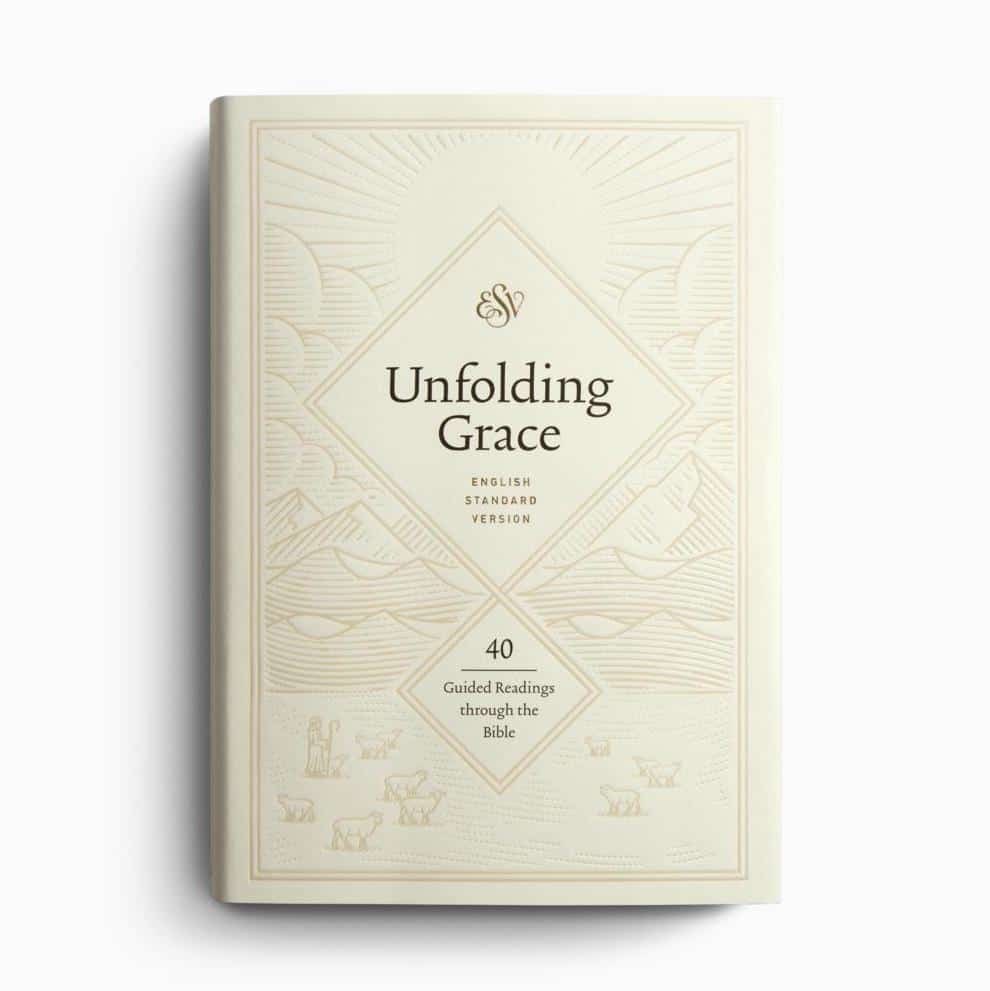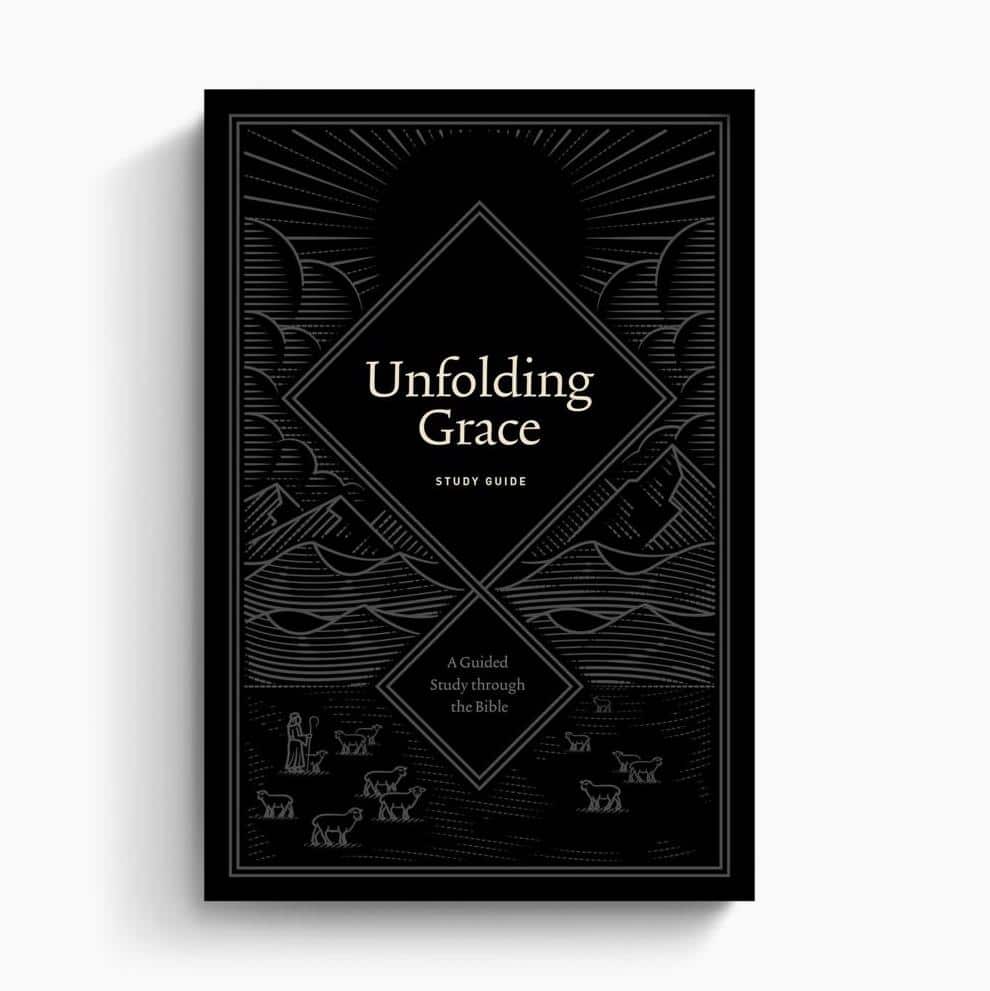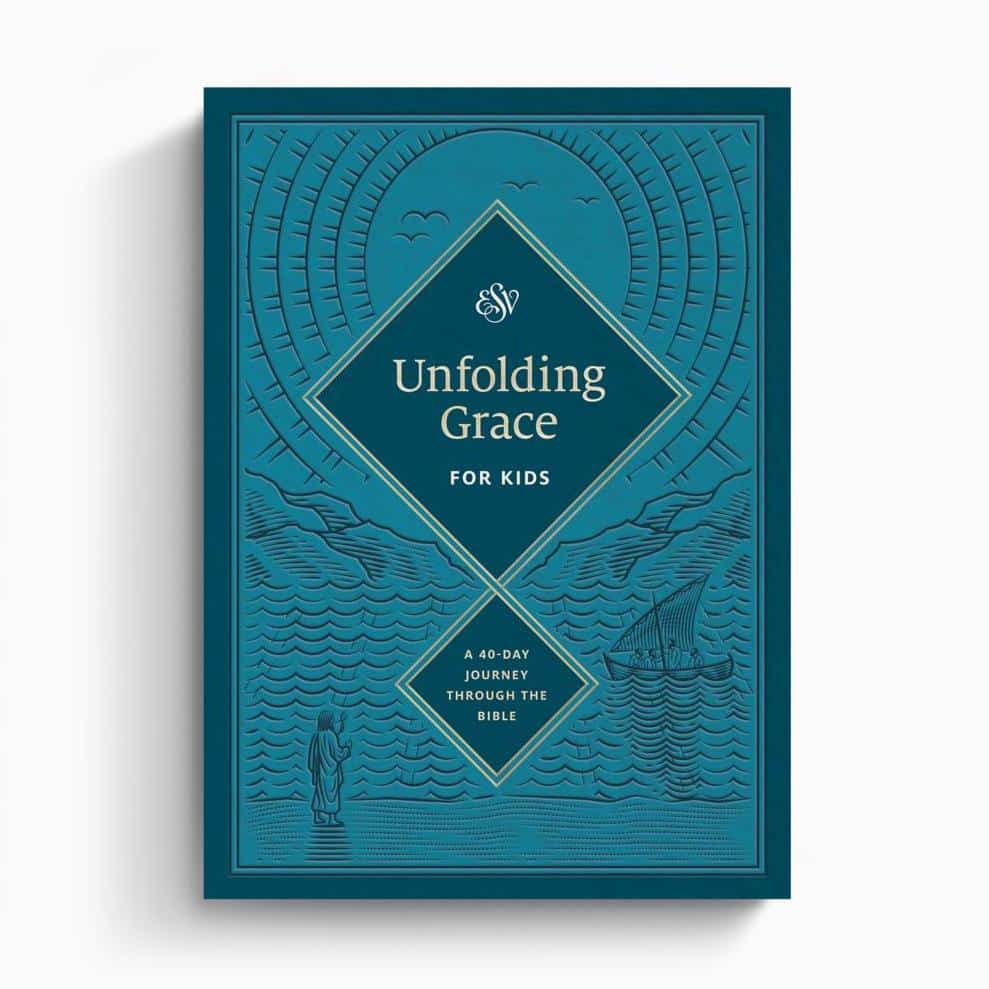LESSON TWENTY-TWO
Judah Exiled
The kingdom of Israel swiftly divides after Solomon’s death. The ten northern tribes split from the two southern tribes. This creates two kingdoms—the northern kingdom, called Israel, and the southern kingdom, called Judah.
The northern kingdom of Israel declines rapidly. Rather than following a Davidic king, it follows a succession of unfaithful kings. Rather than worshiping the Lord in the temple, the people worship idols in shrines. After two hundred more years of astonishing patience, God eventually judges them with exile. The Assyrians conquer and carry many Israelites away in 722 BC. The southern kingdom of Judah also declines, but at a slower rate. The next narrative shows how God eventually uses the superpower Babylon to send Judah into exile in 586 BC.
Exile means leaving the place of God’s special presence and blessing. Israel’s exile repeats Adam’s original exile from Eden and pictures humanity’s continuing exile from God. Ever since Adam’s exile, every human is separated from God and is a stranger in this world.
But there is hope: the God who rightly sends us out is the God who will one day bring us home through Jesus.
SCRIPTURE READING
2 Kings 21-25
Reading Time: 22 Minutes
Manasseh was twelve years old when he began to reign, and he reigned fifty-five years in Jerusalem. His mother’s name was Hephzibah. And he did what was evil in the sight of the Lord, according to the despicable practices of the nations whom the Lord drove out before the people of Israel. For he rebuilt the high places that Hezekiah his father had destroyed, and he erected altars for Baal and made an Asherah, as Ahab king of Israel had done, and worshiped all the host of heaven and served them. And he built altars in the house of the Lord, of which the Lord had said, “In Jerusalem will I put my name.” And he built altars for all the host of heaven in the two courts of the house of the Lord. And he burned his son as an offering and used fortune-telling and omens and dealt with mediums and with necromancers. He did much evil in the sight of the Lord, provoking him to anger. And the carved image of Asherah that he had made he set in the house of which the Lord said to David and to Solomon his son, “In this house, and in Jerusalem, which I have chosen out of all the tribes of Israel, I will put my name forever. And I will not cause the feet of Israel to wander anymore out of the land that I gave to their fathers, if only they will be careful to do according to all that I have commanded them, and according to all the Law that my servant Moses commanded them.” But they did not listen, and Manasseh led them astray to do more evil than the nations had done whom the Lord destroyed before the people of Israel.
And the Lord said by his servants the prophets, “Because Manasseh king of Judah has committed these abominations and has done things more evil than all that the Amorites did, who were before him, and has made Judah also to sin with his idols, therefore thus says the Lord, the God of Israel: Behold, I am bringing upon Jerusalem and Judah such disaster that the ears of everyone who hears of it will tingle. And I will stretch over Jerusalem the measuring line of Samaria, and the plumb line of the house of Ahab, and I will wipe Jerusalem as one wipes a dish, wiping it and turning it upside down. And I will forsake the remnant of my heritage and give them into the hand of their enemies, and they shall become a prey and a spoil to all their enemies, because they have done what is evil in my sight and have provoked me to anger, since the day their fathers came out of Egypt, even to this day.”
Moreover, Manasseh shed very much innocent blood, till he had filled Jerusalem from one end to another, besides the sin that he made Judah to sin so that they did what was evil in the sight of the Lord.
Now the rest of the acts of Manasseh and all that he did, and the sin that he committed, are they not written in the Book of the Chronicles of the Kings of Judah? And Manasseh slept with his fathers and was buried in the garden of his house, in the garden of Uzza, and Amon his son reigned in his place.
Amon was twenty-two years old when he began to reign, and he reigned two years in Jerusalem. His mother’s name was Meshullemeth the daughter of Haruz of Jotbah. And he did what was evil in the sight of the Lord, as Manasseh his father had done. He walked in all the way in which his father walked and served the idols that his father served and worshiped them. He abandoned the Lord, the God of his fathers, and did not walk in the way of the Lord. And the servants of Amon conspired against him and put the king to death in his house. But the people of the land struck down all those who had conspired against King Amon, and the people of the land made Josiah his son king in his place. Now the rest of the acts of Amon that he did, are they not written in the Book of the Chronicles of the Kings of Judah? And he was buried in his tomb in the garden of Uzza, and Josiah his son reigned in his place.
Josiah was eight years old when he began to reign, and he reigned thirty-one years in Jerusalem. His mother’s name was Jedidah the daughter of Adaiah of Bozkath. And he did what was right in the eyes of the Lord and walked in all the way of David his father, and he did not turn aside to the right or to the left.
In the eighteenth year of King Josiah, the king sent Shaphan the son of Azaliah, son of Meshullam, the secretary, to the house of the Lord, saying, “Go up to Hilkiah the high priest, that he may count the money that has been brought into the house of the Lord, which the keepers of the threshold have collected from the people. And let it be given into the hand of the workmen who have the oversight of the house of the Lord, and let them give it to the workmen who are at the house of the Lord, repairing the house (that is, to the carpenters, and to the builders, and to the masons), and let them use it for buying timber and quarried stone to repair the house. But no accounting shall be asked from them for the money that is delivered into their hand, for they deal honestly.”
And Hilkiah the high priest said to Shaphan the secretary, “I have found the Book of the Law in the house of the Lord.” And Hilkiah gave the book to Shaphan, and he read it. And Shaphan the secretary came to the king, and reported to the king, “Your servants have emptied out the money that was found in the house and have delivered it into the hand of the workmen who have the oversight of the house of the Lord.” Then Shaphan the secretary told the king, “Hilkiah the priest has given me a book.” And Shaphan read it before the king.
When the king heard the words of the Book of the Law, he tore his clothes. And the king commanded Hilkiah the priest, and Ahikam the son of Shaphan, and Achbor the son of Micaiah, and Shaphan the secretary, and Asaiah the king’s servant, saying, “Go, inquire of the Lord for me, and for the people, and for all Judah, concerning the words of this book that has been found. For great is the wrath of the Lord that is kindled against us, because our fathers have not obeyed the words of this book, to do according to all that is written concerning us.”
So Hilkiah the priest, and Ahikam, and Achbor, and Shaphan, and Asaiah went to Huldah the prophetess, the wife of Shallum the son of Tikvah, son of Harhas, keeper of the wardrobe (now she lived in Jerusalem in the Second Quarter), and they talked with her. And she said to them, “Thus says the Lord, the God of Israel: ‘Tell the man who sent you to me, Thus says the Lord, Behold, I will bring disaster upon this place and upon its inhabitants, all the words of the book that the king of Judah has read. Because they have forsaken me and have made offerings to other gods, that they might provoke me to anger with all the work of their hands, therefore my wrath will be kindled against this place, and it will not be quenched. But to the king of Judah, who sent you to inquire of the Lord, thus shall you say to him, Thus says the Lord, the God of Israel: Regarding the words that you have heard, because your heart was penitent, and you humbled yourself before the Lord, when you heard how I spoke against this place and against its inhabitants, that they should become a desolation and a curse, and you have torn your clothes and wept before me, I also have heard you, declares the Lord. Therefore, behold, I will gather you to your fathers, and you shall be gathered to your grave in peace, and your eyes shall not see all the disaster that I will bring upon this place.’ ” And they brought back word to the king.
Then the king sent, and all the elders of Judah and Jerusalem were gathered to him. And the king went up to the house of the Lord, and with him all the men of Judah and all the inhabitants of Jerusalem and the priests and the prophets, all the people, both small and great. And he read in their hearing all the words of the Book of the Covenant that had been found in the house of the Lord. And the king stood by the pillar and made a covenant before the Lord, to walk after the Lord and to keep his commandments and his testimonies and his statutes with all his heart and all his soul, to perform the words of this covenant that were written in this book. And all the people joined in the covenant.
And the king commanded Hilkiah the high priest and the priests of the second order and the keepers of the threshold to bring out of the temple of the Lord all the vessels made for Baal, for Asherah, and for all the host of heaven. He burned them outside Jerusalem in the fields of the Kidron and carried their ashes to Bethel. And he deposed the priests whom the kings of Judah had ordained to make offerings in the high places at the cities of Judah and around Jerusalem; those also who burned incense to Baal, to the sun and the moon and the constellations and all the host of the heavens. And he brought out the Asherah from the house of the Lord, outside Jerusalem, to the brook Kidron, and burned it at the brook Kidron and beat it to dust and cast the dust of it upon the graves of the common people. And he broke down the houses of the male cult prostitutes who were in the house of the Lord, where the women wove hangings for the Asherah. And he brought all the priests out of the cities of Judah, and defiled the high places where the priests had made offerings, from Geba to Beersheba. And he broke down the high places of the gates that were at the entrance of the gate of Joshua the governor of the city, which were on one’s left at the gate of the city. However, the priests of the high places did not come up to the altar of the Lord in Jerusalem, but they ate unleavened bread among their brothers. And he defiled Topheth, which is in the Valley of the Son of Hinnom, that no one might burn his son or his daughter as an offering to Molech. And he removed the horses that the kings of Judah had dedicated to the sun, at the entrance to the house of the Lord, by the chamber of Nathan-melech the chamberlain, which was in the precincts. And he burned the chariots of the sun with fire. And the altars on the roof of the upper chamber of Ahaz, which the kings of Judah had made, and the altars that Manasseh had made in the two courts of the house of the Lord, he pulled down and broke in pieces and cast the dust of them into the brook Kidron. And the king defiled the high places that were east of Jerusalem, to the south of the mount of corruption, which Solomon the king of Israel had built for Ashtoreth the abomination of the Sidonians, and for Chemosh the abomination of Moab, and for Milcom the abomination of the Ammonites. And he broke in pieces the pillars and cut down the Asherim and filled their places with the bones of men.
Moreover, the altar at Bethel, the high place erected by Jeroboam the son of Nebat, who made Israel to sin, that altar with the high place he pulled down and burned, reducing it to dust. He also burned the Asherah. And as Josiah turned, he saw the tombs there on the mount. And he sent and took the bones out of the tombs and burned them on the altar and defiled it, according to the word of the Lord that the man of God proclaimed, who had predicted these things. Then he said, “What is that monument that I see?” And the men of the city told him, “It is the tomb of the man of God who came from Judah and predicted these things that you have done against the altar at Bethel.” And he said, “Let him be; let no man move his bones.” So they let his bones alone, with the bones of the prophet who came out of Samaria. And Josiah removed all the shrines also of the high places that were in the cities of Samaria, which kings of Israel had made, provoking the Lord to anger. He did to them according to all that he had done at Bethel. And he sacrificed all the priests of the high places who were there, on the altars, and burned human bones on them. Then he returned to Jerusalem.
And the king commanded all the people, “Keep the Passover to the Lord your God, as it is written in this Book of the Covenant.” For no such Passover had been kept since the days of the judges who judged Israel, or during all the days of the kings of Israel or of the kings of Judah. But in the eighteenth year of King Josiah this Passover was kept to the Lord in Jerusalem.
Moreover, Josiah put away the mediums and the necromancers and the household gods and the idols and all the abominations that were seen in the land of Judah and in Jerusalem, that he might establish the words of the law that were written in the book that Hilkiah the priest found in the house of the Lord. Before him there was no king like him, who turned to the Lord with all his heart and with all his soul and with all his might, according to all the Law of Moses, nor did any like him arise after him.
Still the Lord did not turn from the burning of his great wrath, by which his anger was kindled against Judah, because of all the provocations with which Manasseh had provoked him. And the Lord said, “I will remove Judah also out of my sight, as I have removed Israel, and I will cast off this city that I have chosen, Jerusalem, and the house of which I said, My name shall be there.”
Now the rest of the acts of Josiah and all that he did, are they not written in the Book of the Chronicles of the Kings of Judah? In his days Pharaoh Neco king of Egypt went up to the king of Assyria to the river Euphrates. King Josiah went to meet him, and Pharaoh Neco killed him at Megiddo, as soon as he saw him. And his servants carried him dead in a chariot from Megiddo and brought him to Jerusalem and buried him in his own tomb. And the people of the land took Jehoahaz the son of Josiah, and anointed him, and made him king in his father’s place.
Jehoahaz was twenty-three years old when he began to reign, and he reigned three months in Jerusalem. His mother’s name was Hamutal the daughter of Jeremiah of Libnah. And he did what was evil in the sight of the Lord, according to all that his fathers had done. And Pharaoh Neco put him in bonds at Riblah in the land of Hamath, that he might not reign in Jerusalem, and laid on the land a tribute of a hundred talents of silver and a talent of gold. And Pharaoh Neco made Eliakim the son of Josiah king in the place of Josiah his father, and changed his name to Jehoiakim. But he took Jehoahaz away, and he came to Egypt and died there. And Jehoiakim gave the silver and the gold to Pharaoh, but he taxed the land to give the money according to the command of Pharaoh. He exacted the silver and the gold of the people of the land, from everyone according to his assessment, to give it to Pharaoh Neco.
Jehoiakim was twenty-five years old when he began to reign, and he reigned eleven years in Jerusalem. His mother’s name was Zebidah the daughter of Pedaiah of Rumah. And he did what was evil in the sight of the Lord, according to all that his fathers had done.
In his days, Nebuchadnezzar king of Babylon came up, and Jehoiakim became his servant for three years. Then he turned and rebelled against him. And the Lord sent against him bands of the Chaldeans and bands of the Syrians and bands of the Moabites and bands of the Ammonites, and sent them against Judah to destroy it, according to the word of the Lord that he spoke by his servants the prophets. Surely this came upon Judah at the command of the Lord, to remove them out of his sight, for the sins of Manasseh, according to all that he had done, and also for the innocent blood that he had shed. For he filled Jerusalem with innocent blood, and the Lord would not pardon. Now the rest of the deeds of Jehoiakim and all that he did, are they not written in the Book of the Chronicles of the Kings of Judah? So Jehoiakim slept with his fathers, and Jehoiachin his son reigned in his place. And the king of Egypt did not come again out of his land, for the king of Babylon had taken all that belonged to the king of Egypt from the Brook of Egypt to the river Euphrates.
Jehoiachin was eighteen years old when he became king, and he reigned three months in Jerusalem. His mother’s name was Nehushta the daughter of Elnathan of Jerusalem. And he did what was evil in the sight of the Lord, according to all that his father had done.
At that time the servants of Nebuchadnezzar king of Babylon came up to Jerusalem, and the city was besieged. And Nebuchadnezzar king of Babylon came to the city while his servants were besieging it, and Jehoiachin the king of Judah gave himself up to the king of Babylon, himself and his mother and his servants and his officials and his palace officials. The king of Babylon took him prisoner in the eighth year of his reign and carried off all the treasures of the house of the Lord and the treasures of the king’s house, and cut in pieces all the vessels of gold in the temple of the Lord, which Solomon king of Israel had made, as the Lord had foretold. He carried away all Jerusalem and all the officials and all the mighty men of valor, 10,000 captives, and all the craftsmen and the smiths. None remained, except the poorest people of the land. And he carried away Jehoiachin to Babylon. The king’s mother, the king’s wives, his officials, and the chief men of the land he took into captivity from Jerusalem to Babylon. And the king of Babylon brought captive to Babylon all the men of valor, 7,000, and the craftsmen and the metal workers, 1,000, all of them strong and fit for war. And the king of Babylon made Mattaniah, Jehoiachin’s uncle, king in his place, and changed his name to Zedekiah.
Zedekiah was twenty-one years old when he became king, and he reigned eleven years in Jerusalem. His mother’s name was Hamutal the daughter of Jeremiah of Libnah. And he did what was evil in the sight of the Lord, according to all that Jehoiakim had done. For because of the anger of the Lord it came to the point in Jerusalem and Judah that he cast them out from his presence.
And Zedekiah rebelled against the king of Babylon.
And in the ninth year of his reign, in the tenth month, on the tenth day of the month, Nebuchadnezzar king of Babylon came with all his army against Jerusalem and laid siege to it. And they built siegeworks all around it. So the city was besieged till the eleventh year of King Zedekiah. On the ninth day of the fourth month the famine was so severe
in the city that there was no food for the people of the land. Then a breach was made in the city, and all the men of war fled by night by the way of the gate between the two walls, by the king’s garden, and the Chaldeans were around the city. And they went in the direction of the Arabah. But the army of the Chaldeans pursued the king and overtook him in the plains of Jericho, and all his army was scattered from him. Then they captured the king and brought him up to the king of Babylon at Riblah, and they passed sentence on him. They slaughtered the sons of Zedekiah before his eyes, and put out the eyes of Zedekiah and bound him in chains and took him to Babylon.
In the fifth month, on the seventh day of the month—that was the nineteenth year of King Nebuchadnezzar, king of Babylon—Nebuzaradan, the captain of the bodyguard, a servant of the king of Babylon, came to Jerusalem. And he burned the house of the Lord and the king’s house and all the houses of Jerusalem; every great house he burned down. And all the army of the Chaldeans, who were with the captain of the guard, broke down the walls around Jerusalem. And the rest of the people who were left in the city and the deserters who had deserted to the king of Babylon, together with the rest of the multitude, Nebuzaradan the captain of the guard carried into exile. But the captain of the guard left some of the poorest of the land to be vinedressers and plowmen.
And the pillars of bronze that were in the house of the Lord, and the stands and the bronze sea that were in the house of the Lord, the Chaldeans broke in pieces and carried the bronze to Babylon. And they took away the pots and the shovels and the snuffers and the dishes for incense and all the vessels of bronze used in the temple service, the fire pans also and the bowls. What was of gold the captain of the guard took away as gold, and what was of silver, as silver. As for the two pillars, the one sea, and the stands that Solomon had made for the house of the Lord, the bronze of all these vessels was beyond weight. The height of the one pillar was eighteen cubits, and on it was a capital of bronze. The height of the capital was three cubits. A latticework and pomegranates, all of bronze, were all around the capital. And the second pillar had the same, with the latticework.
And the captain of the guard took Seraiah the chief priest and Zephaniah the second priest and the three keepers of the threshold; and from the city he took an officer who had been in command of the men of war, and five men of the king’s council who were found in the city; and the secretary of the commander of the army, who mustered the people of the land; and sixty men of the people of the land, who were found in the city. And Nebuzaradan the captain of the guard took them and brought them to the king of Babylon at Riblah. And the king of Babylon struck them down and put them to death at Riblah in the land of Hamath. So Judah was taken into exile out of its land.
And over the people who remained in the land of Judah, whom Nebuchadnezzar king of Babylon had left, he appointed Gedaliah the son of Ahikam, son of Shaphan, governor. Now when all the captains and their men heard that the king of Babylon had appointed Gedaliah governor, they came with their men to Gedaliah at Mizpah, namely, Ishmael the son of Nethaniah, and Johanan the son of Kareah, and Seraiah the son of Tanhumeth the Netophathite, and Jaazaniah the son of the Maacathite. And Gedaliah swore to them and their men, saying, “Do not be afraid because of the Chaldean officials. Live in the land and serve the king of Babylon, and it shall be well with you.” But in the seventh month, Ishmael the son of Nethaniah, son of Elishama, of the royal family, came with ten men and struck down Gedaliah and put him to death along with the Jews and the Chaldeans who were with him at Mizpah. Then all the people, both small and great, and the captains of the forces arose and went to Egypt, for they were afraid of the Chaldeans.
And in the thirty-seventh year of the exile of Jehoiachin king of Judah, in the twelfth month, on the twenty-seventh day of the month, Evil-merodach king of Babylon, in the year that he began to reign, graciously freed Jehoiachin king of Judah from prison. And he spoke kindly to him and gave him a seat above the seats of the kings who were with him in Babylon. So Jehoiachin put off his prison garments. And every day of his life he dined regularly at the king’s table, and for his allowance, a regular allowance was given him by the king, according to his daily needs, as long as he lived.
2 KINGS 21-25
Study Guide Questions
- How are the primary institutions of Israel (i.e., temple, sacrifice, priesthood, the law, prophets) affected in this section?
- How does the favorable treatment of King Jehoiachin at the end of this section provide hope for Israel’s future?
2 KINGS 25:1–21
Family Discussion Questions
- Can you summarize what Nebuchadnezzar and his army did to Israel?
- Since this is ultimately God’s judgment on Israel for their sin, what does this tell us about God’s character?
- How is it good news that God is just—that is, that is he committed to punishing sin and evil?
- How does this story remind us of our need for forgiveness and transformed hearts?
PART FOUR REVIEW
God’s Kingdom Declined and Partially Restored
God brings Israel to a high point during the reign of Solomon. He establishes Solomon’s reign, gives him unmatched wisdom, and draws the nations to his rule. But Solomon turns from the Lord, and the people of Israel continue their centuries-long pattern of idolatry and disobedience. The united kingdom of Israel splits into northern and southern kingdoms. God uses the Assyrians to judge and exile the northern kingdom of Israel. Later he uses the Babylonians to judge and exile the southern kingdom of Judah. As God promised through Moses long before, he would remove his blessings from Israel if they continued in rebellious unbelief. Israel is exiled from their good land just as Adam and Eve were exiled from Eden in the beginning.
But God continues to remain faithful to his covenant promises to Abraham and to Israel and to David—promises that will lead ultimately to the restoration of God’s presence and blessing to all nations. He raises up the Persian ruler Cyrus to conquer Babylon and send many Israelites back to their land. These Israelites raise a new temple and rebuild Jerusalem’s walls. It is a day of small things—it certainly is not the full and glorious restored kingdom God promised through the prophets—but the Lord is blessing them. They now must trust him for a coming day of greater blessing, a day in which he will send his true King to restore Israel and send his blessings to the nations.
LESSON TWENTY-TWO
Judah Exiled
The kingdom of Israel quickly divided after Solomon’s death. The ten northern tribes split from the two southern tribes. This created two kingdoms: the northern kingdom, called Israel, and the southern kingdom, called Judah.
The northern kingdom of Israel followed unfaithful kings and worshiped idols rather than God. God eventually judged Israel with exile in 722 BC, which means that he sent the people out of their land. The Assyrians defeated and carried away many Israelites. Then the southern kingdom of Judah also rejected God. This next text shows how God used the powerful kingdom of Babylon to send Judah into exile in 586 BC.
Exile means leaving the place of God’s presence and blessing. Israel’s exile was like Adam’s original exile from Eden. It also reminds us that every human being is born into this world exiled and separated from God. But we have hope: the God who rightly sent us out is the God who would one day bring us home through Jesus.
SCRIPTURE READING
2 Kings 25:1-21
Reading Time: 3 Minutes
And in the ninth year of his reign, in the tenth month, on the tenth day of the month, Nebuchadnezzar king of Babylon came with all his army against Jerusalem and laid siege to it. And they built siegeworks all around it. So the city was besieged till the eleventh year of King Zedekiah. On the ninth day of the fourth month the famine was so severe in the city that there was no food for the people of the land. Then a breach was made in the city, and all the men of war fled by night by the way of the gate between the two walls, by the king’s garden, and the Chaldeans were around the city. And they went in the direction of the Arabah. But the army of the Chaldeans pursued the king and overtook him in the plains of Jericho, and all his army was scattered from him. Then they captured the king and brought him up to the king of Babylon at Riblah, and they passed sentence on him. They slaughtered the sons of Zedekiah before his eyes, and put out the eyes of Zedekiah and bound him in chains and took him to Babylon.
In the fifth month, on the seventh day of the month—that was the nineteenth year of King Nebuchadnezzar, king of Babylon—Nebuzaradan, the captain of the bodyguard, a servant of the king of Babylon, came to Jerusalem. And he burned the house of the Lord and the king’s house and all the houses of Jerusalem; every great house he burned down. And all the army of the Chaldeans, who were with the captain of the guard, broke down the walls around Jerusalem. And the rest of the people who were left in the city and the deserters who had deserted to the king of Babylon, together with the rest of the multitude, Nebuzaradan the captain of the guard carried into exile. But the captain of the guard left some of the poorest of the land to be vinedressers and plowmen.
And the pillars of bronze that were in the house of the Lord, and the stands and the bronze sea that were in the house of the Lord, the Chaldeans broke in pieces and carried the bronze to Babylon. And they took away the pots and the shovels and the snuffers and the dishes for incense and all the vessels of bronze used in the temple service, the fire pans also and the bowls. What was of gold the captain of the guard took away as gold, and what was of silver, as silver. As for the two pillars, the one sea, and the stands that Solomon had made for the house of the Lord, the bronze of all these vessels was beyond weight. The height of the one pillar was eighteen cubits, and on it was a capital of bronze. The height of the capital was three cubits. A latticework and pomegranates, all of bronze, were all around the capital. And the second pillar had the same, with the latticework.
And the captain of the guard took Seraiah the chief priest and Zephaniah the second priest and the three keepers of the threshold; and from the city he took an officer who had been in command of the men of war, and five men of the king’s council who were found in the city; and the secretary of the commander of the army, who mustered the people of the land; and sixty men of the people of the land, who were found in the city. And Nebuzaradan the captain of the guard took them and brought them to the king of Babylon at Riblah. And the king of Babylon struck them down and put them to death at Riblah in the land of Hamath. So Judah was taken into exile out of its land.
SERMON SERIES
Finding Our Purpose in God’s Plan
These six messages belong to the Unfolding Grace: Finding Our Purpose in God’s Plan sermon series that author and pastor Drew Hunter preached at his home church. Through these six messages, he tells us the story of the Bible—a story that reveals the grace of God.
BUY THE BOOK
Book Series
The content you enjoy in this Unfolding Grace Reading Plan comes from the Unfolding Grace book series by Pastor Drew Hunter, published by Crossway Publishers. We encourage you to purchase a physical copy of Unfolding Grace to use individually, with your family, or as a small group.








